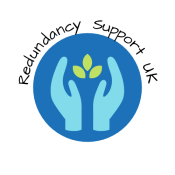Feel, File, Focus

As a coach, I mingle with all sorts of employees and business owners from across various sectors. Through COVID, I’ve seen people who’ve been made redundant, had contracts terminated, wages or fees slashed, and even business owners who have had to make the tough decision to lay off some of their team. I include myself here as I too have found my employment affected by COVID.
I’ve seen a whole range of emotions from resentment, shock, fear, excitement and even relief. And these emotions have varied in both depth and duration. What makes these emotions notable is the impact they can have on the mindset of those affected.
The more negative emotions have the power to hold those affected in a form of stasis. They find themselves unable to process what has happened to them and, more importantly, unable to take steps in response to the impact on their employment.
This is because 80% of our performance is as a result of our mindset. 80%!!! And the 4 main saboteurs of a helpful mindset are: stress; confidence; motivation; and attitude. Bet nobody who has suffered a job loss experienced any of those, right?
So if we don’t process the negative emotions that arise when we lose jobs we are unlikely to find a suitable or even better alternative. This generates a negatively reinforcing loop that can lead to a downwards spiral, resulting in depression or other mental health episodes.
Just at the time when life is probably very tricky, the last thing we need is to be off our A Game!
In order to maintain a productive mindset when life throws us curveballs, I have 3 tips: feel it; file it; and then focus! Let me bring those to life a little!
Feel it: squashing or ignoring our emotions doesn’t help. In my experience, they have a tendency to behave like an erupting volcano somewhere down the line! Instead, I encourage the observation, recognition and normalising of emotions that occur in response to negative events. This can be done via:
- journaling – via a written diary or audio diary, depending on your preference,
- a conversation with a professional (like a counsellor or coach),
- a chat to a trusted person who won’t feel a sense of burden (like a child or partner who may feel they have to “lean in” with wages etc)
The benefit of this reflective practice is not just to process the emotions, and hence stop them becoming a blocker, but to help inform future employment efforts too.
File it: Once the emotions have been processed, the next step is to stop any wallowing and make them work for us! To do this I recommend dialling up our ”noticing”:
- really recognise the days when there is little or no impetus to e.g. job hunt;
- undergo a bit of self-diagnosis:
- what has caused the ‘meh’;
- where has it come from;
- if it could speak, what would that lack of “umph” tell you
- what do you need to do differently as a result?
It’s a bit like when you’ve just bought a yellow mini and now all you can see is yellow minis everywhere! You’re just dialling up that awareness so that you can file it, and move on, incorporating the learning it has given you.
Finally, Focus. There are plenty of resources available to help folks with life after job loss, whether that be seminars on job hunting to get you “back in the game” or business start-up support groups if you decide now is the time to go independent.
Throwing yourself into the “what next” can be helpful in its own way. There’s a great expression by Henry Ford, “if you believe you can, you’re already half way there”.
So, my key message? Knowing that 80% of your performance comes from your mindset, be focussed on managing your mindset so you can be successful at whatever comes next.
Johanna Hooper is Director of Limitless Peak Performance and Coach and Mental Health First Aider - if you'd like to know more you can visit her website or call/ email 07713 196730 johanna@limitlesspeakperformance.co.uk
